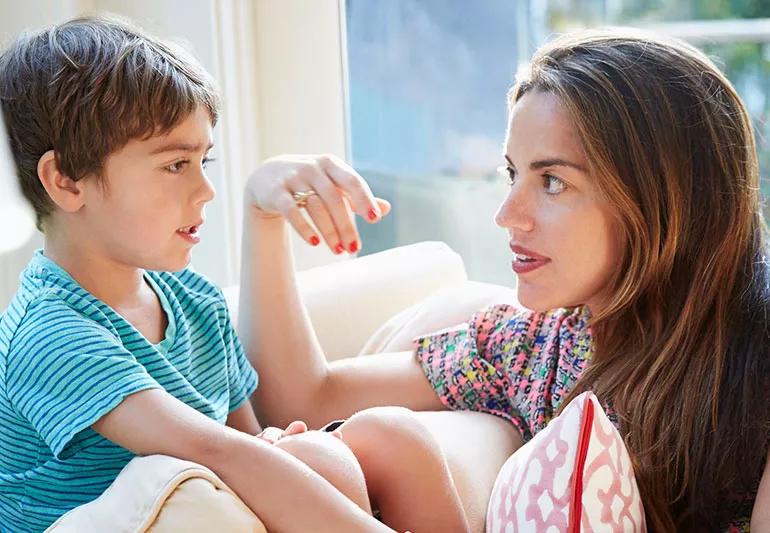Tips to help comfort and protect your child

As the rates of coronavirus (COVID-19) continue to rise, schools across the country are closing in an effort to help protect children and their families.
Advertisement
Cleveland Clinic is a non-profit academic medical center. Advertising on our site helps support our mission. We do not endorse non-Cleveland Clinic products or services. Policy
And with all of the disruption and talk about COVID-19, it’s bound to cause alarm, worry or confusion in some children. That’s why it’s important to have an open and honest conversation with your child about everything they might be hearing and seeing – especially if they’re seeing it on TV or hearing it from other people.
“Everyone is talking about coronavirus, it’s everywhere you look,” says Kate Eshleman, PsyD. “And if we’re seeing it so prominently, that means our kids are too and they might not understand it all – and that can be scary for them.”
Although it might not seem like a big deal, Dr. Eshleman urges parents to sit down with their children to explain COVID-19 in a way that they’ll understand. It doesn’t need to be a super in-depth conversation either, but listening to them and giving them a chance to ask questions can help children cope and better understand.
Dr. Eshleman gives these tips for having a conversation about COVID-19 with your kids:
Advertisement
“Children are intuitive and pick up on more than you think they do,” says Dr. Eshleman. “They can sense when adults are talking in whispers or being hush-hush about something. They’re also good at sensing fear or anxiety in adults, which in turn can make them feel that way too.”
Children have limited life experience, so talking to them and showing that they matter can help them understand and feel secure.
Advertisement
Learn more about our editorial process.
Advertisement

Connecting with others, going for a walk or focusing on sleep quality can help more than you might realize

You may not always notice it, but your mental health has just as big of an impact on your well-being as your physical health

Rethinking your Mondays might make the ‘Sunday scaries’ a thing of the past

Get to know the resources they have on and off campus, including their friends

College is a time of big transitions, intense stress and major lifestyle changes

Wishing you made a different decision can help you learn from your mistakes

This term from TikTok encourages positive affirmations around ‘luck’

Start a conversation, gently ask questions and offer help without judgment

Type 2 diabetes isn’t inevitable with these dietary changes

Applying a hot or cold compress can help with pain